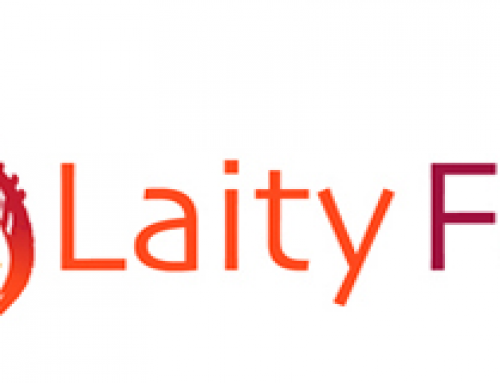The Holy See said on Tuesday the international community should respond to the Zika virus with “due vigilance,” but the “way forward should not be dictated by panic,” and condemned recent statements by some UN officials calling for countries to liberalize abortion laws in response to the virus.
The Holy See’s Permanent Observer to the United Nations, Archbishop Bernardito Auza, was speaking during a briefing on Zika virus, which has been linked to birth defects such as microcephaly and Guillain-Barré syndrome.
“We are deeply concerned by the recent call by some government officials, as well as the Office of the High Commissioner for Human Rights, for the liberalization of abortion laws and access to abortifacients as a means to prevent the birth of children with birth defects,” Archbishop Auza said.
“Not only is increased access to abortion and abortifacients an illegitimate response to this crisis, but since it terminates the life of a child it is fundamentally not preventative,” he continued.
“Regardless of the connection to the Zika virus, it is a fact of human existence that some children develop conditions like microcephaly, and that these children deserve to be protected and cared for throughout their lives, in accordance with our obligation to safeguard all human life, healthy and disabled, with equal commitment, leaving no one behind,” Archbishop Auza said. (RV)
The full remarks by Archbishop Auza are below.
Intervention of the Permanent Observer Mission of the Holy See to the United Nations during the interactive discussion following the Briefing on the Zika virus, convened by the President of the Economic and Social Council
16 February 2016
Mr. President, my delegation would like to thank you for organizing today’s briefing and to thank representatives from the WHO, Pan-American Health Organization and the CDC for their informative and timely presentations.
Mr. President,
It is with profound concern for the people of Latin America, and for the world, that my delegation takes the floor today. Containing and combatting the spread of the Zika virus and the resulting health emergency is not only a major challenge to governments in Latin America, but also for the entire international community, which stands in solidarity with the affected. We are encouraged by the WHO and the Pan American Health Organization’s commitment to fighting this international public health emergency, and urge all governments, in conjunction with the UN system, to make every effort to help the region stop the spread of the virus and to provide those already infected with adequate treatment and access to necessary health care services.
We would like to call attention to the poor and the vulnerable, especially the elderly, children, and the disabled who may be both at greater risk of contracting the virus and least likely to have immediate access to preventative tools, information and medical treatment. They need our utmost attention and we must be sure not to leave them behind.
In the context of this virus, pregnant mothers and their unborn children are also among the ranks of the most vulnerable. The suggested link between Zika and birth defects represents an exceedingly grave concern, which merits concerted action by the international community. More research is needed to determine a connection between the virus and microcephaly and Guillain-Barré syndrome. It is clear from the current research and information that, thankfully, not all pregnant women who contract the virus place their children at risk of having birth defects. Moreover, to date, transmission of the virus has been verified principally through mosquito bites and only rarely from mother to child.(1) Though there have been suggestions that the disease can be transmitted sexually, these rare reports have yet to be medically confirmed.
Because of the scarcity of conclusive scientific evidence up to this point, and the dramatic consequences for human life, it follows that the way forward should not be dictated by panic but due vigilance.
Given the potential implications for pregnancy and for the spread of the disease, it is clear that part of an effective response should involve the promotion of abstinence.
To be clear, there is need for a comprehensive solution that focuses on access to information, preventative treatment, and necessary health-care services, especially in the context of maternal and child health.
Mr. President,
In this regard, we are deeply concerned by the recent call by some government officials, as well as the Office of the High Commissioner for Human Rights, for the liberalization of abortion laws and access to abortifacients as a means to prevent the birth of children with birth defects.
Not only is increased access to abortion and abortifacients an illegitimate response to this crisis, but since it terminates the life of a child it is fundamentally not preventative. Instead, the promotion of such a radical policy is the confirmation of a failure of the international community to stop the spread of the disease and to develop and provide the medical treatment pregnant women and their children need, to avoid the development of birth defects or to mitigate their effects and carry the pregnancy to term.
It must be emphasized that a diagnosis of microcephaly in a child should not warrant a death sentence. Recently a Brazilian journalist born with microcephaly, Ana Carolina Caceres, has spoken out against the misinformation and fear surrounding the condition that is leading some to think that those with microcephaly, like Ana Carolina, are better off not living than living and contributing to our society as she does. Let us keep Ana Carolina and her testimony in mind as we deliberate upon the proper way to respond to the crisis. Regardless of the connection to the Zika virus, it is a fact of human existence that some children develop conditions like microcephaly, and that these children deserve to be protected and cared for throughout their lives, in accordance with our obligation to safeguard all human life, healthy and disabled, with equal commitment, leaving no one behind.
(1)
http://www.cdc.gov/zika/transmission/
………………………………












